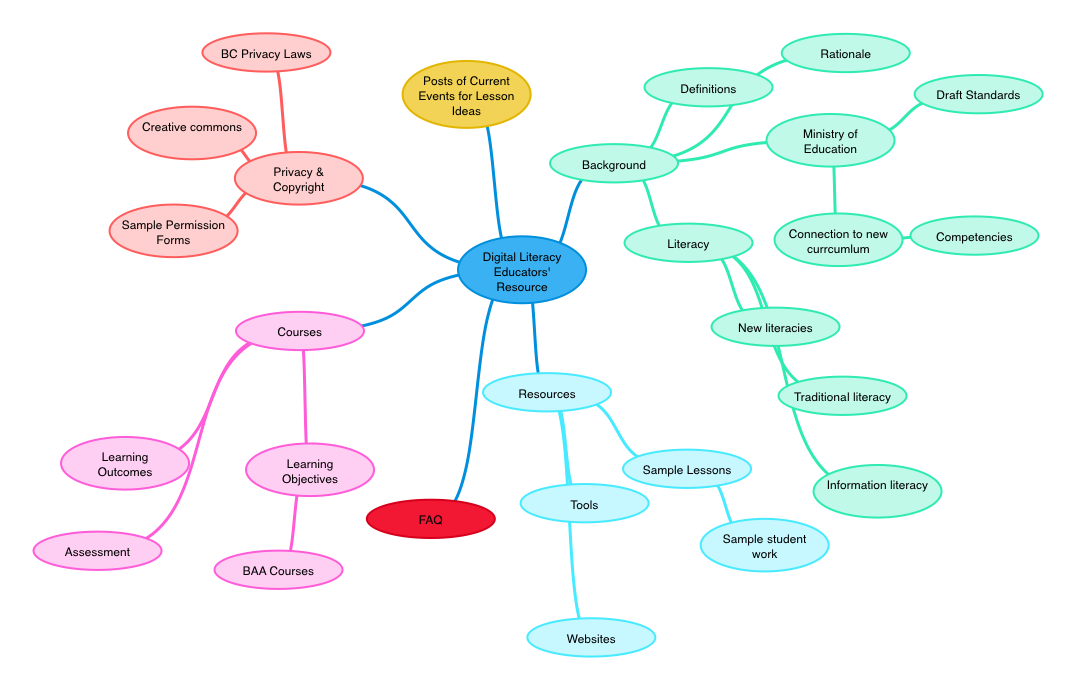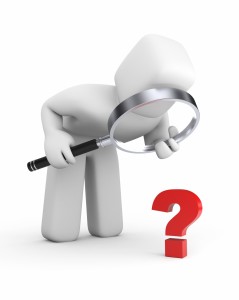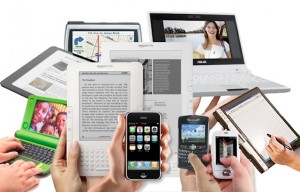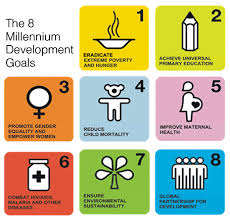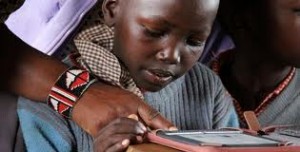Defining Digital Literacy
Digital literacy is defined as the ability to interact critically, creatively and ethically with multimodal text, tools and people in digital contexts. Consequently, the digital literacy competencies fall into four groups: Citizenship, Create, Consume and Use.
Digital Literacy Competencies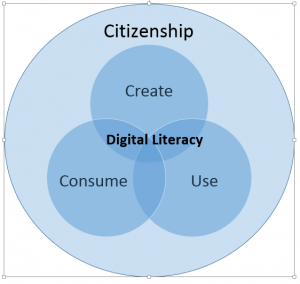
Citizenship: Understanding rights and responsibilities.
Create: Creating and communicating with digital tools.
Consume: Critically understanding and using digital content.
Use: Accessing and using digital software and hardware.
Rationale for Digital Literacy
Digital literacy is necessary for students to become positive and productive digital citizens. In the 21st century, students need to master skills essential to being a lifelong learner such as how to access, manage, integrate, analyze and evaluate information, construct new knowledge, create and communicate with others.
Rationale for an Educators’ Resource Website on Digital Literacy
Educators are busy professionals that need a user friendly one stop shop that answers what digital literacy is and offers meaningful methods and examples of how to integrate it into and across various disciplines. As digital literacy is still a new term, it is often loosely and inaccurately used to cover a variety of items. This website will offer a synthesized and simplified definition based on international and national research that is both teacher and student friendly. I will provide access to this research as well as how digital literacy connects to traditional, information and new literacies for those wishing to dig deeper. In addition, clear learning outcomes, assessment tools, sample lessons and sample student work will help educators better envision what digital literacy is and how to adapt it to their contexts. So often we just want to ‘see’ what it looks like!
A main concern when venturing into this field is privacy and copyright. I hope to clearly outline what teachers need to be aware of and offer suggestions and examples of how to navigate these concerns while turning them into learning opportunities for everyone.
Finally, I hope to offer ideas for digital literacy learning opportunities using relevant current events and a wide range of multimedia. I plan to post these ideas weekly during the remaining three months to help inspire ideas of how to incorporate digital literacy in a meaningful and relevant way. For example, the recent Westjet passenger who criticized his pilot for being female prompted a lesson on gender stereotypes in our society. Combined with the controversial Ashton martin ad (which being a fake offers another avenue for exploration!) and the amusing Ellen Degeneres satire of a Bic Pens for Ladies commercial, this made for a rich conversation and investigation into the role technology can play in both reinforcing and challenging gender stereotypes.
